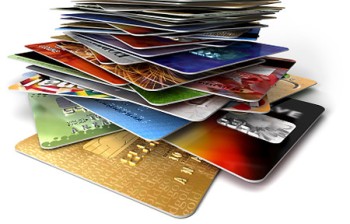Credit card scams
 What is a credit card scam?
What is a credit card scam?
A credit card scam can come in many forms. For example, scammers may use spyware or some other scam to obtain your credit card details. A scammer might steal or trick you into telling them your security code (the three or four digit code on your card) and then make purchases over the internet or the telephone. If they know your PIN, they could get cash advances from an ATM using a ‘cloned’ credit card (where your details have been copied onto the magnetic strip of another card).
Of course, there is also a danger of someone using your credit card if it has been physically lost or stolen.
If you are buying something over the telephone or internet and want to use your credit card, make sure you know and trust the other party. If you want to provide your credit card details to a telemarketer, take their name and call them back on a phone number you find independently (i.e., not a number they give to you).
Check over your credit card and bank account statements as soon as you get them so that if anybody is using your account without your permission you can tell your bank.
Warning signs
-
There are transactions listed in your credit card statement that you don’t understand.
-
You have given your credit card details to someone you now suspect may not be trustworthy (perhaps over the internet).
-
You have lost your card.
-
You have kept your security information (eg your PIN or the access code on your card) written down somewhere near your card and you find that it is missing
Protect yourself from credit card scams
-
NEVER send money, or give credit card or online account details to anyone you do not know and trust.
-
Check your bank account and credit card statements when you get them. If you see a transaction you cannot explain, report it to your credit union or bank.
-
Keep your credit card and ATM cards safe. Do not share your personal identity number (PIN) with anyone. Do not keep any written copy of your PIN with the card.
-
Choose passwords that would be difficult for anyone else to guess.
-
Try to avoid using public computers (at libraries or internet cafes) to do your internet banking.
-
Do not use software on your computer that auto-completes online forms. This can give internet scammers easy access to your personal and credit card details.
-
Do not give out your personal, credit card or online account details over the phone unless you made the call and the phone number came from a trusted source.
Never send your personal, credit card or online account details through an email.
Whenever you want to give out your credit card details, ask yourself if it is safe to do so. If you are very careful with your credit card and PIN, you can greatly reduce the chances of your credit card details ending up with a scammer.
If you think your credit card or bank account is being used by somebody else you must report it firstly to your bank as soon as possible. If the unauthorised use of your credit card is the result of some sort of scam, you can also report a scam through the WA ScamNet website and warn your friends and family.
Check out our Help for victims section to see a selection for services available for victims.



